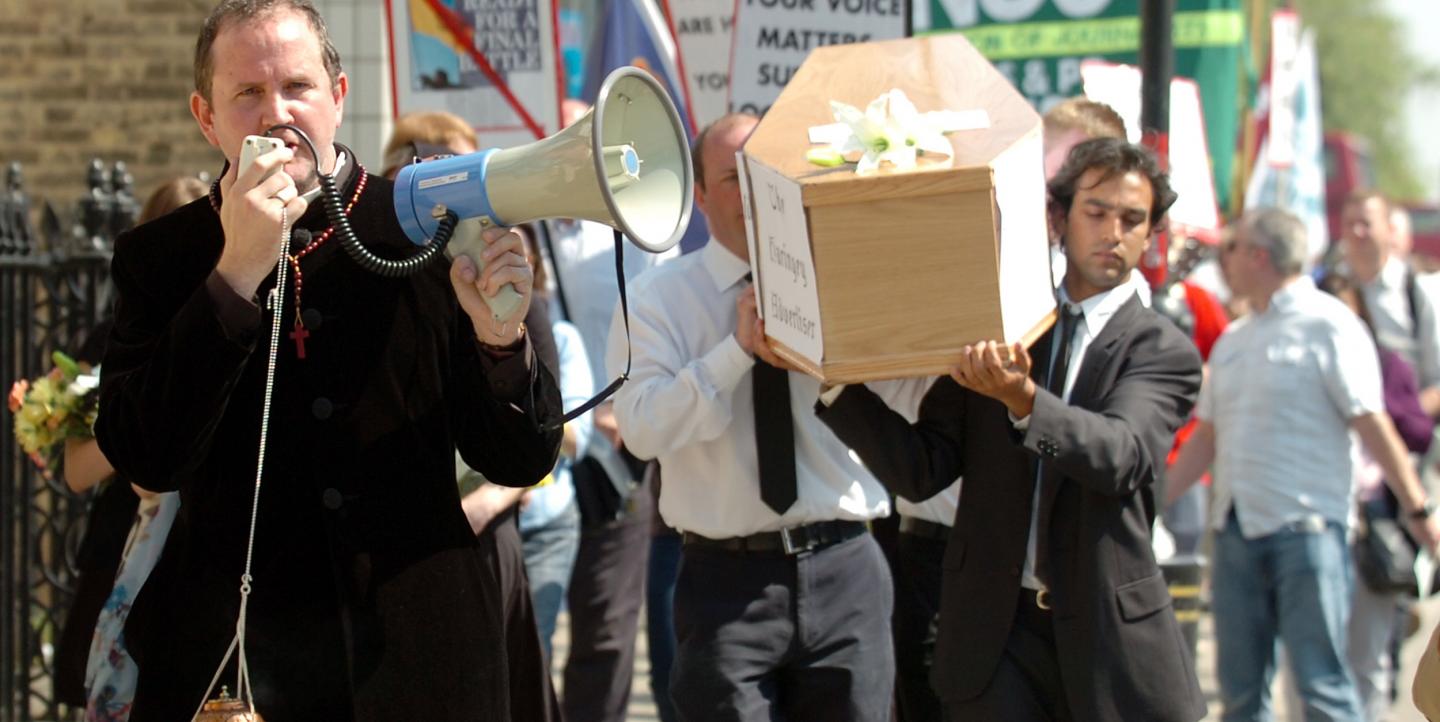An editorial team in the U.K. enters week two of its strike against budget cuts in the hopes of opening talks with the publisher.
On April 19, nine journalists working for Tindle Newspaper’s North London and Herts papers began a two-week strike against a series of staff reductions and budget cuts. The protesters say the cuts have forced them to resort to “churnalism,” the practice of rewriting press releases as original news.
IJNet followed up with features editor Jonathan Lovett, who helped organize the strike, about the response to the first week of protests — and what's next.
IJNet: How have the publishers reacted to the strike so far?
Jonathan Lovett: Our publisher at the local level, Alison Cruse, has kept tight-lipped thus far, as has our proprietor, Sir Ray Tindle. I believe this will stay the same until after our strike is over and then, hopefully, we can get back around the table and they will offer us something not to carry on the strike. Before striking, we did not receive one concession from management after nearly a year of negotiations.
IJNet: Have your received other attention for the strike?
JL: We have had an excellent first week of strike action with support coming in from all over the country, a mass demonstration on Wednesday, and lots of good coverage, including a live interview for the BBC.
IJNet: What do you have planned for week two?
JL: In week two we intend to expand the protest to other areas which we have not had the chance to target yet — the boroughs of Barnet and Haringey.
We have papers in both areas and we intend to protest at key locations throughout the two boroughs, leafleting, talking to people and generally raising awareness of what is happening to their local paper.

